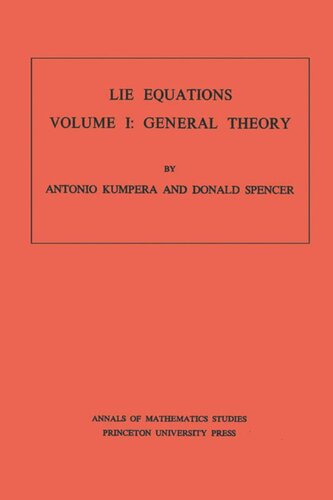

Most ebook files are in PDF format, so you can easily read them using various software such as Foxit Reader or directly on the Google Chrome browser.
Some ebook files are released by publishers in other formats such as .awz, .mobi, .epub, .fb2, etc. You may need to install specific software to read these formats on mobile/PC, such as Calibre.
Please read the tutorial at this link: https://ebookbell.com/faq
We offer FREE conversion to the popular formats you request; however, this may take some time. Therefore, right after payment, please email us, and we will try to provide the service as quickly as possible.
For some exceptional file formats or broken links (if any), please refrain from opening any disputes. Instead, email us first, and we will try to assist within a maximum of 6 hours.
EbookBell Team

5.0
28 reviewsIn this monograph the authors redevelop the theory systematically using two different approaches. A general mechanism for the deformation of structures on manifolds was developed by Donald Spencer ten years ago. A new version of that theory, based on the differential calculus in the analytic spaces of Grothendieck, was recently given by B. Malgrange. The first approach adopts Malgrange's idea in defining jet sheaves and linear operators, although the brackets and the non-linear theory arc treated in an essentially different manner. The second approach is based on the theory of derivations, and its relationship to the first is clearly explained. The introduction describes examples of Lie equations and known integrability theorems, and gives applications of the theory to be developed in the following chapters and in the subsequent volume.